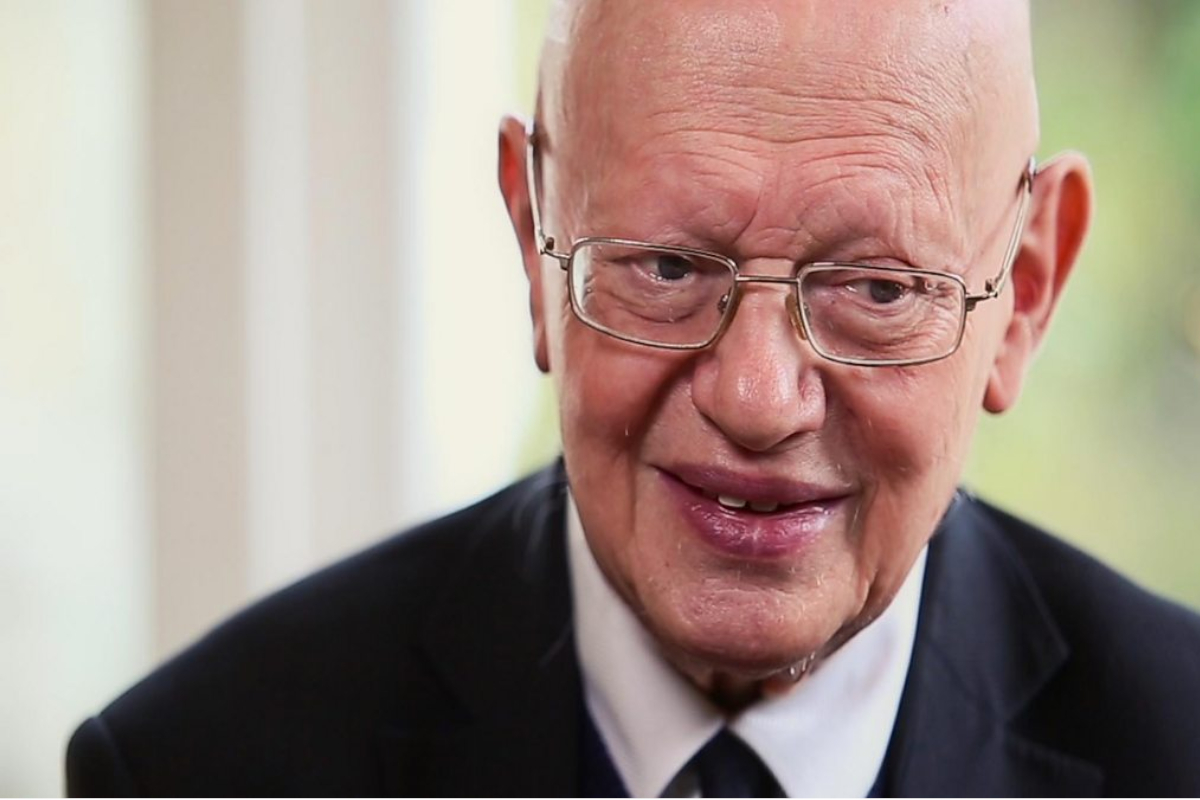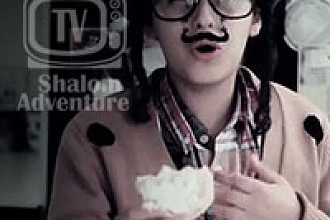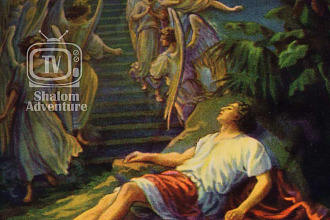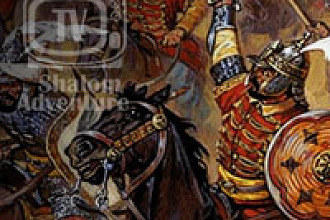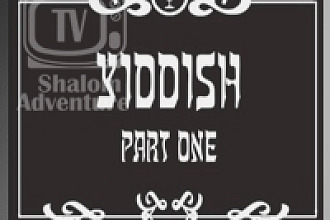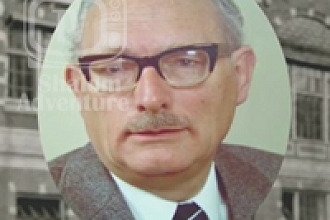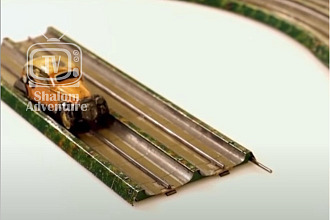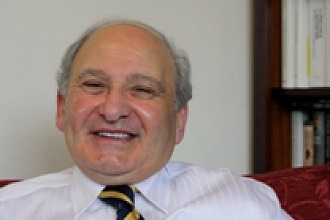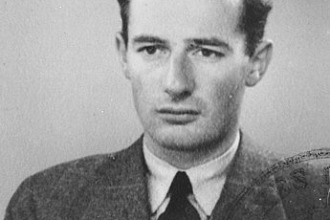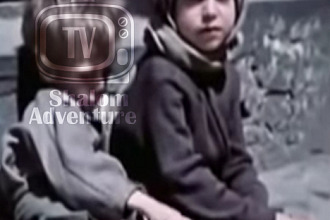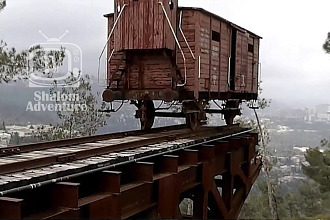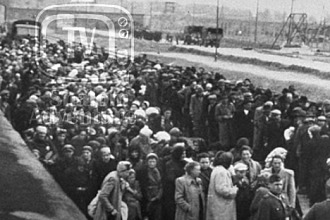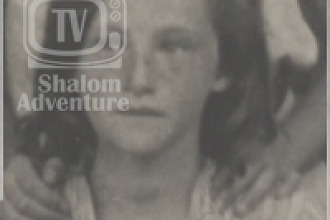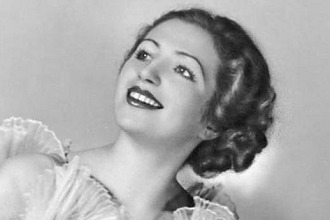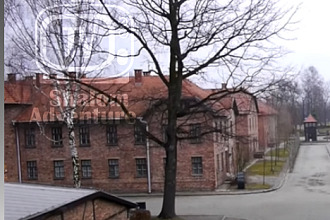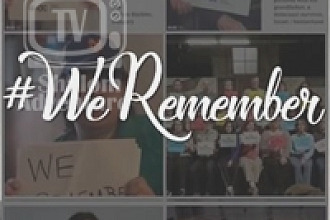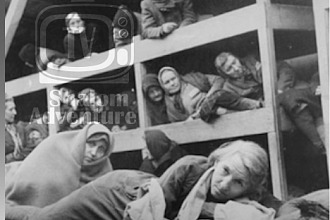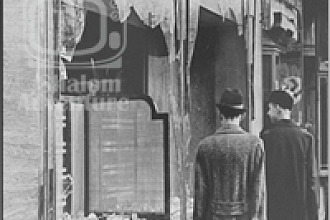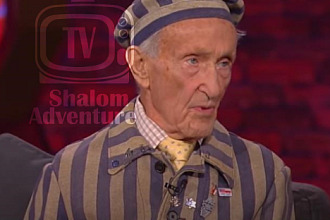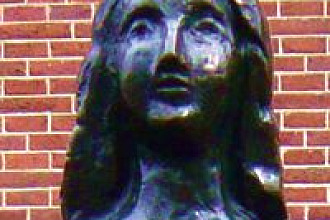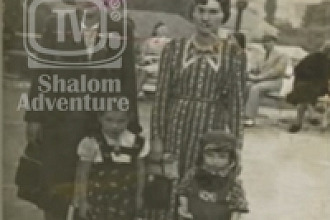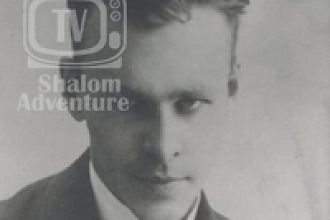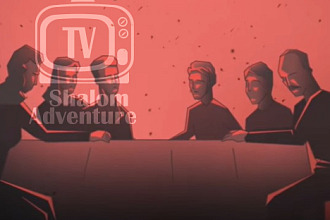Martin Kapel was born in Leipzig, Germany in 1930. As the son of Polish parents, Martin was legally classed as a Polish citizen by the nationality laws of both Poland and Germany. This fact was to become significant in Martin's story.
Martin's father had left Poland as a young man to go to Germany. His mother's parents likewise left Poland with their young family to do the same, settling in Nuremberg before moving to Strasbourg in France in about 1923. Martin's parents met in Strasbourg and were married in France. They later moved back to Germany, settling in Leipzig where Martin and his sister were born.
Martin was brought up in an orthodox Jewish household. His grandparents on both sides were Hasidic Jews. His parents did not follow such extreme orthodoxy, but nonetheless practiced the Jewish faith. The family did not live in the Jewish area of Leipzig; instead they lived in a working class area of the city. They were not well off, particularly after Martin's father died when he was five years old.
Martin began going to school shortly before his sixth birthday. By this time the Nazis were already in power, and Martin recalls the Nazi propaganda that formed part of his education, particularly the Fahnenehrung (honoring the flag) celebration that took place several times each term. However, his teacher was not deliberately unkind to Martin despite having to teach Nazi propaganda.
Martin remembers the impact of anti-Jewish legislation during the 1930s and particularly recalls seeing and hearing Nazi propaganda. The main change for him came in 1938 when Jewish children were no longer allowed to go to non-Jewish schools. Martin had to leave school and instead go to a Jewish school, which was a long way from his home and very overcrowded, as it had had to take children from all over the city. He recalls the atmosphere of fear and nervousness among both staff and pupils and the difficulty of the long journey to school.
One morning in 1938, Martin and his family were asleep in their beds when there was a knock at the door. When his mother answered it, Nazis walked in and the family was told to dress quickly and go with them. They were only allowed to take what they could grab on the spur of the moment and were watched carefully to ensure they didn't try to take any valuables. They were taken to a small police station a few streets away and were told to wait, not knowing what was going to happen. Eventually a bus arrived, a rare sight in Leipzig where public transport was normally by tram; they got on the bus and were taken to a railway station to join a large crowd of people. Everyone was put on board a train, and again were not told where they were being taken. At a station a short distance into the journey some of the passengers realized they were locked in and could not open the train door from the inside. SS men and German police on the platform threatened to shoot anyone who tried to escape.
The train stopped at various stations to pick up more passengers. Some of them worked out that the train was traveling eastwards, but that was all they knew about where they were going. Eventually, after dark, the train arrived at a small railway station and everyone was ordered to get off. The prisoners were formed into rows, with an SS man at the end of each row, and marched off past a small town and into a forest. Martin describes the wide range of people - young children, elderly people, those carrying babies and those who had been taken from hospital beds - and the difficulty of marching through the forest at night. He was grateful to have been taken with his mother and sister as one family, as some of the other people had been taken from school or the workplace and had no idea where other members of their family were.
Eventually, the column was stopped beside a railway line. The people were told that the SS men would go no further but that they should continue and walk along the railway line between the rails. They walked for hours in the dark along the railway line, with a number of people tripping and being trampled by those behind who couldn't see where they were going. Eventually they saw some lights to their left and walked across a ploughed field to a small hamlet. After a few hours some Polish police and soldiers arrived and they realized that they were in Poland. The expulsion had been carried out in secret by the Germans, so the Polish authorities had no idea that it was happening. The incident became known as the 'Polenaktion'.
Martin and his mother and sister managed to get away amid the general chaos and eventually made their way to some relations in Krakow, who knew nothing of their coming. They stayed with their relatives until they were able to find somewhere else to stay and were in Krakow for about eight months. They were welcomed by their relatives but not by the Polish authorities, who considered them to be illegal immigrants despite the fact that they had been expelled from Germany by force. Martin also recalls the high level of resentment and anti-Semitism in Poland that meant they had to stay within the Jewish area of Krakow.
After eight months in Krakow, Martin and his family went to stay with other relatives in a small village (stetl) called Brzesko. His relatives there lived a completely Hasidic way of life. One member of the family earned a living for the whole family, while the other members devoted their lives to religious study and observance. One of Martin's uncles was a Dayan, a judge for the community, who was responsible for adjudicating in disputes between individuals or families and for determining whether or not meat should be considered kosher. The village was primitive and extremely poor with no gas or water supply, though it did have electricity for lighting thanks to the generator at the nearby brewery. Martin feels privileged to have experienced this way of life in Poland, as it was completely extinguished by the Holocaust.
Martin's mother managed to get Martin and his sister a place on the Kindertransport that was arranged for those children who had been involved in the forced expulsion from Germany. They traveled to England and went to live with foster parents in Coventry. They went first to Krakow by train, and then to Warsaw and Gdynia where they boarded a ship. Because it was a Friday they boarded the ship early and had a Sabbath evening service before they sailed. The journey took them through the Kiel Canal into the River Elbe and then across the North Sea to London. They were met there by their new foster-mother and arrived in Coventry by train in the early evening.
Martin describes being anxious and very much afraid at making a journey into the unknown without his mother at the age of eight. He was unable to speak English, and the people around him did not speak either German or Yiddish so he was unable to talk to people. He also had to contend with the cultural differences between a boy from an orthodox Jewish household and English working class people who had a completely different set of values. Martin stayed with his sister, but they both reacted differently to the extent that they could hardly communicate with each other which added to the difficulty of settling into an unfamiliar environment.
After a week or two in England, Martin was sent to the local school, though he was only there for a couple of weeks before the school broke up for the summer holiday. During the holiday the war broke out so the start of the next term was delayed until adequate air raid shelters had been built in part of the school hall and the playground had been converted into an ambulance station. During the holiday, Martin was able to learn a little English. Once back at school, he was put into a group of younger children, but picked English up relatively quickly so that after a few months he was moved into a class of boys of his own age. Martin didn't experience any anti-Semitism in school, though he did meet with some outside of school.
In the autumn of 1940, England began to experience air raids on the civilian population. Of the many air raids on Coventry, the one on 14 November 1940 was the biggest. Martin and his foster family hid in a small pantry under the stairs, where he and his sister were very frightened by his foster-parents' aggressive and dangerous dog. The house lost its doors and windows during the raid and suffered structural damage. Following each air raid there was no gas, electricity or water for several weeks and a danger of typhoid fever due to leaking water and sewage pipes.
Martin's mother escaped Poland on a temporary visa to France. She was able to survive, but after the trauma that Martin had experienced, he was not subsequently able to rebuild his relationship with her. Of his relatives in Poland, none survived. Martin's family page in the Book of Remembrance at the Marjorie and Arnold Ziff Community Centre lists 22 people.

